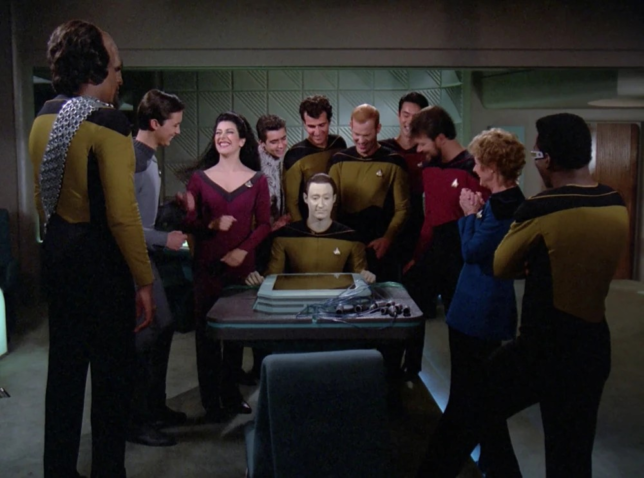“It is possible to commit no mistakes and still lose. That is not a weakness, that is life.”
If you are raised by well-meaning and loving parents, you are taught to believe if you work hard and do right by others you will reap a rewarding life personally and professionally. Without a doubt, this is the best and noblest way to live, but there are days when you will get beat down and hurt through no fault of your own.
In the Star Trek: The Next Generation episode “Peak Performance”, Data is cornered into playing a game of Stratagema against the visiting Kolrami, grandmaster of the game. Data’s crew mates, particularly Dr. Pulaski, are convinced he will win because as an android he is faster and smarter. Instead, Data gets his ass handed to him.
Although Data has no emotions or ego, the defeat drives him to investigate what he did wrong and to over-analyze his actions to the point of removing himself from duty just before a battle simulation against Commander Riker. As near as Data can tell, he did everything right but did not succeed, so as acting first officer, he is greatly concerned he might give Picard bad advice. After failed attempts by Pulaski and Counselor Troi to convince him to not read too much into his defeat, it’s up to the captain to “handhold an Android” and basically tell Data to buck up. “It is possible to commit no mistakes and still lose,” Picard tells him. “That is not a weakness, that is life.”
Part of being a grownup is realizing we can make all of the right moves and still not get the desired result. We can do exceptional work for our employer and still lose our job; we can adopt the healthiest diet and lifestyle only to be plagued by chronic maladies, both mental and physical; and, we can be a true and loving person to a family member or friend but still be pushed away through no fault of our own.
When confronted by these situations, it’s easy fall into the trap of second-guessing ourselves and inventorying in our mind everything we could have done to achieve a different outcome. Some of us get back on our feet quickly, others need more time. It’s a human reaction. Data ultimately gets a second chance to take on Kolrami and by changing his strategy, incites the alien to forfeit the game: Rather than trying to win, Data decides not to lose, thereby achieving a stalemate.
In life, sometimes the best you can hope for is a draw.
Gary Hilson is a freelance writer with a focus on B2B technology, including information technology, cybersecurity, and semiconductors. This article was originally published on Medium, May 31, 2013.
